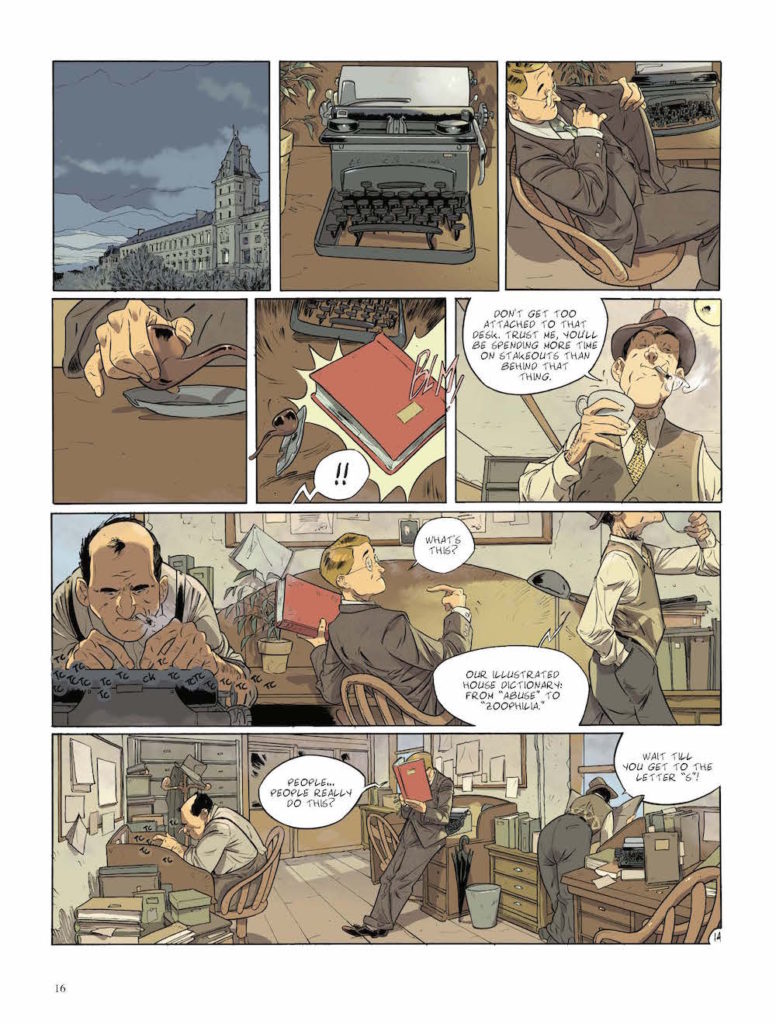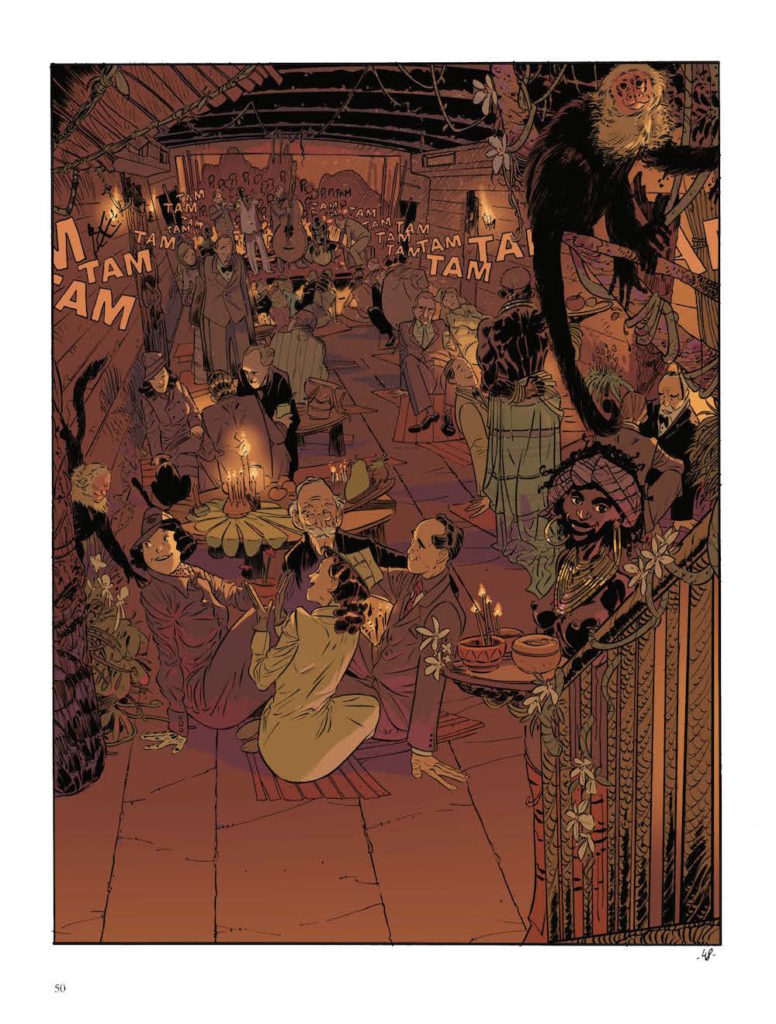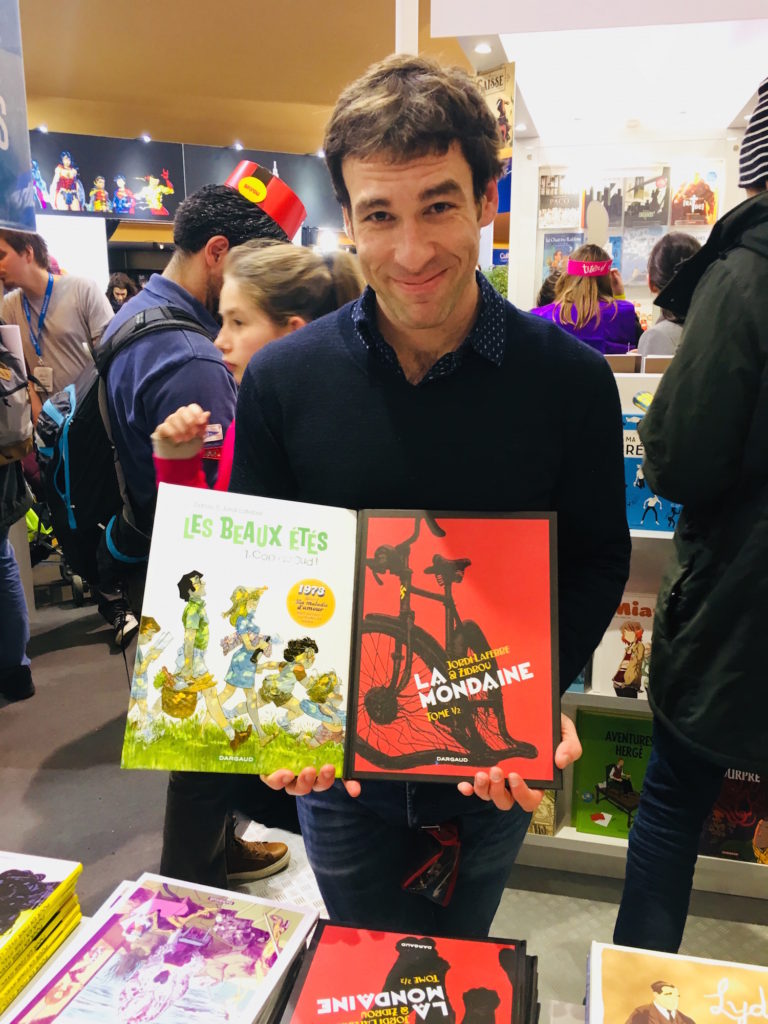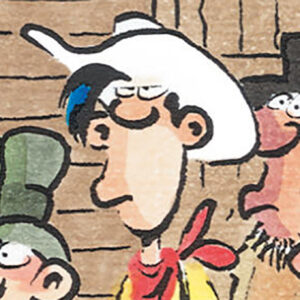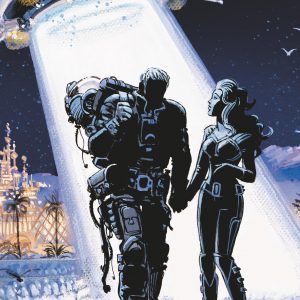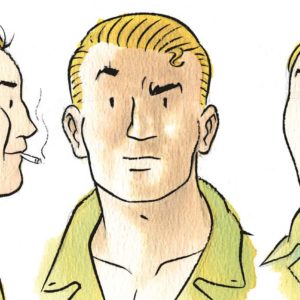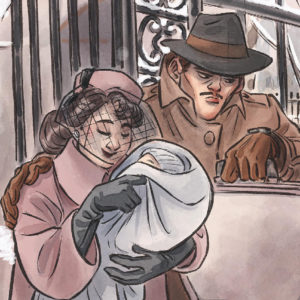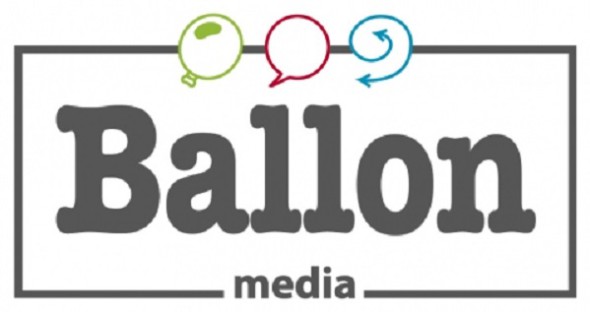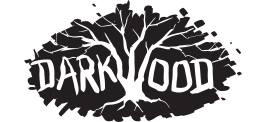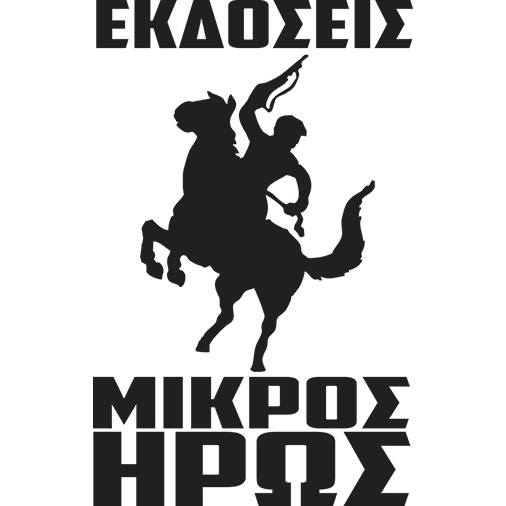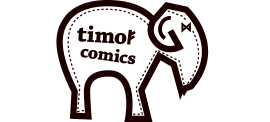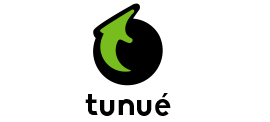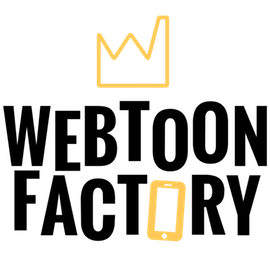Jordi Lafebre was born in Barcelona, where he studied comic book art and fine arts before making his debut as an illustrator in 2001. He’s been published in several Spanish magazines, such as Mister K, to which he contributed El Mundo de Judy in collaboration with writer Toni Front. Things really took off for Jordi after his meeting with Zidrou. After a few illustrations for the weekly magazine Spirou, he contributed to a collective work with Zidrou, and in 2010, they collaborated on their first album – Lydie. In 2014, again with Zidrou, he illustrated Vice Squad, before jumping into his new series Glorious Summers, which are coming to Europe Comics this May! We met with Jordi during the Angoulême Comics Festival to find out more about him and his work.
How did you decide to become a comics artist?
It’s not a decision, it’s a thing you have to accept when you are a child. You have comic books in your head all the time, so you tell your parents: “I’m gonna take a shot and become a comic book artist.” It’s a thing that’s bigger than you. With the arts, there are several things you can do, but for comic books you have to be a storyteller, you have to really want to tell stories.
What other artists inspire you?
When you’re a child, the artists that you admire, they’re gonna be like your fathers artistically, so you try to take after them. I grew up with Uderzo (Asterix), North American animator Chuck Jones, Warner Brothers, Disney and some manga too, like Dragon Ball. In Spain in the ‘80s it was all merged. We read manga and North American comic books and French comic books. And even though I became a comic book artist mostly for the French market, all the different influences are there.
You work a lot with Zidrou (Vice Squad, Glorious Summers). Are there any other scriptwriters you would like to collaborate with?
Working with a scriptwriter is more about the relationship, you really need to be able to connect with him or her. And as I said before, it’s about the storytelling, so you have to decide on what story you want to tell to the public. Sometimes it’s not the same thing: the stories you like to read, the stories you like to tell, and the stories you can tell based on the skills that you have. You are who you are and you have to manage all these different things. There are of course a lot of great scriptwriters are out there, but you have to choose what stories you can tell.
In the Europe Comics collection we already have Vice Squad and this May we are adding Glorious Summers. Which title would you say is closer to your heart and why?
Every single story I’ve drawn up until now has been emotional and personal, because you have to find an emotional link to the story, otherwise you can’t do it. So you look for that link inside you, you look for inspiration. Sometimes it’s a graphic emotion, sometimes it’s something you’ve experienced on your own. So every book I’ve drawn is linked to me in one way or another. That’s why I don’t have a favorite. Vice Squad is a dark and tragic story. There is a lot of dramatic emotion. And with Glorious Summers, it’s really different. It’s a story about a family.
Could you give us a little preview of the story?
It’s about having a good time with your family and surviving your family at the same time. You can like being with them, but at the same time you are who you are, and with a little house and a little car, everyone is trying to manage, trying to find their place. There are two sets of parents, four kids, different ages, different personalities, different life situations.
There are three volumes out in French at the moment. How many are you planning to put out?
We’re planning more. The story goes on, it’s definitely not finished yet. It’s not a chronological story, so you can either pick the first volume of the third volume, you don’t have to read the first volume first. You start to get familiar with the characters and then you really get to know them in the other volumes.
Which elements do you find the most interesting to draw? Is it the characters, the nature, the city (as in the case of Vice Squad, where the events took place in Paris)?
Absolutely the characters. For me the most important thing is the motion of the book, what you are talking about, what you are trying to explain to the others. As an artist when I work with the characters, I like to think of them as real people. I try to get to know them, to learn as much as possible about them, to hear their voices, to feel their emotions, and that’s how I get to know their universe. And then I move on to everything else. The scene, the shot, it all revolves around the characters.
When you create your characters, do you find inspiration around you or are they a complete work of your imagination?
It depends. With Glorious Summers, I had to get to know the family at different ages, from the very beginning when the kids are just babies to when they’re all grown up. We’re talking like 30 years of life. And I was forced from the beginning to know the physical and emotional evolution of the characters. So in order to do that, to paint a bigger picture, I picked different people from my life: my father is there, my sister and my daughter are there. On the other hand, as I was talking before about the personal link, there is a lot of myself, emotionally, in the main character of Vice Squad. I had to understand him and what one would do in such a different situation. So I tried to put myself in his shoes.
Detective Louzau from Vice Squad is a very complex character. As a reader you really go from having one sort of feelings towards him to another set of feelings on the complete other side of the spectrum.
Exactly. Extreme circumstances like war can change you completely, and you turn out to be a person you wouldn’t like to be. You can realize that you’re not doing nice things, but it gets to a point where you can’t do anything about it. If you think about it, during the Second World War there were huge numbers of people doing bad things, but you can’t say that every single person on that list was a bad person. It’s the situation. You try to do the best you can given these awful circumstances. It’s like your job. And I tried to explain that. I didn’t want to be cynical about it. Again, I prefer to put myself in the shoes of the character and accept the bad side, because otherwise I’d be judging the character. And I can’t do that, because a character for me is a friend. That’s why I prefer to accept that bad part rather than judge it.
That’s very true. Even as you read the book, you don’t necessarily think of the main character as a villain despite his actions.
Yes, he is not a villain. Life is not black and white. You make your choices, and occasionally they’ll be wrong, but sometimes you can’t do anything about it. It’s the situation that makes you do what you do.
It will be very interesting to read Glorious Summers after Vice Squad, because the books sound like they could not be more different.
Exactly. Zidrou and I were talking about that very thing. In Vice Squad we really went as far as we could, and with Glorious Summers we wanted to come back to the sun, family, being together, positive feelings, and trying our best in life. We’ve really explored the dark side of life with Vice Squad, so here we’re coming back to the bright side.
Header image: Glorious Summers © Zidrou & Jordi Lafebre / Dargaud
